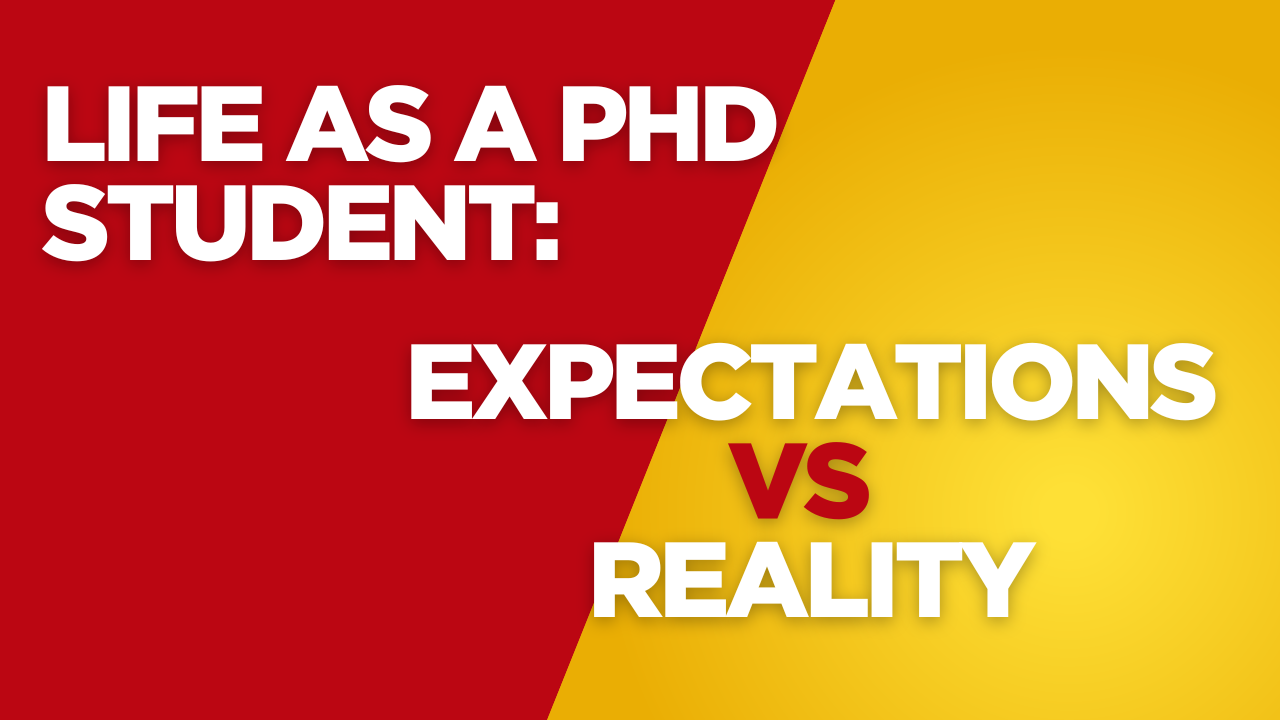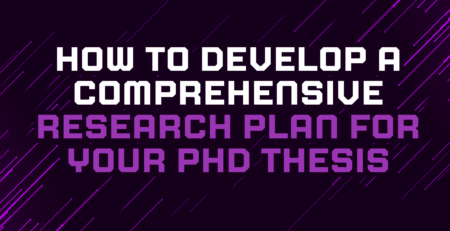Life as a PhD Student: Expectations vs. Reality
Kenfra Research - Shallo2025-04-29T11:53:44+05:30Embarking on a PhD journey is a major milestone. Many students enter doctoral programs filled with dreams of intellectual breakthroughs, academic prestige, and ultimate career success. However, as reality sets in, life as a PhD student often proves to be far more complex than anticipated. In this blog post, we’ll explore life as a PhD student, focusing on expectations vs. reality, and offering insights for prospective and current doctoral candidates. Whether you’re thinking about pursuing a PhD or are currently enrolled in one, this comprehensive comparison will help set realistic expectations and guide you through the ups and downs of your academic journey.

1. Expectation: A Life of Intellectual Exploration
Reality: A Daily Grind of Focused Research
Most students imagine their PhD life will be an exciting journey through uncharted intellectual territories. They expect to constantly engage in innovative thinking and groundbreaking research.
The reality? Much of PhD life involves painstaking detail, repetitive experimentation, and long hours of reading and writing. Your research may revolve around a narrow topic for several years, and you might not always feel inspired.
2. Expectation: Close Mentorship from a Supervisor
Reality: Varying Levels of Support
Many students enter a PhD program expecting a strong, mentor-mentee relationship with their supervisor — someone who will guide them through academic hurdles and help shape their research.
In practice, supervisor involvement varies greatly. Some supervisors are highly engaged, while others take a more hands-off approach. It’s crucial to proactively seek feedback, manage meetings, and develop independence.
Tip: Communication and expectations must be clarified early. Your supervisor is your academic ally but won’t do the work for you.
3. Expectation: A Flexible Schedule
Reality: Flexibility Comes with Responsibility
PhD students often look forward to the flexibility that comes with managing their own time — no 9-to-5 schedule, no micromanagement.
However, flexibility can become a double-edged sword. Without proper time management, it’s easy to lose track of progress. Procrastination, burnout, and lack of structure are common.
Reality Check: While you can work when you want, the work still has to be done — often during evenings, weekends, and holidays.
4. Expectation: Publishing Multiple Papers and Attending Conferences
Reality: Rejections, Revisions, and Slow Progress
Publishing research papers and presenting at international conferences sounds glamorous. Many PhD students assume they’ll regularly publish in prestigious journals and build a strong academic portfolio.
The truth is, academic publishing is tough. Papers can take months — even years — to get accepted. Rejection is common, and revisions are often extensive. Conference travel depends on funding, which may be limited.
Tip for Success: Start small, celebrate minor wins, and build up gradually. Publishing is a marathon, not a sprint.
5. Expectation: A Clear Career Path After Graduation
Reality: A Competitive and Uncertain Job Market
Many believe that earning a PhD guarantees a high-paying academic or industry job. But the job market, especially in academia, is extremely competitive.
Postdocs are common stepping stones, and tenure-track positions are rare. Many PhD holders move into industry, consulting, or entrepreneurship — paths that often require additional skills beyond research.
Career Insight: Start exploring career options early in your PhD. Consider skill-building in data analysis, project management, and communication.
6. Expectation: A Strong Supportive Community
Reality: Isolation Is Real
PhD students often picture themselves as part of a vibrant scholarly community, surrounded by peers who share their passion and drive.
While some departments offer strong support systems, many students report loneliness and isolation, especially during the writing and research phases. Mental health struggles, imposter syndrome, and anxiety are common.
Tip: Proactively build your support network. Join writing groups, attend seminars, and connect with others facing similar challenges.
7. Expectation: Mastering Work-Life Balance
Reality: A Constant Struggle
PhD life is often idealized as an intellectually fulfilling career that allows for a balanced lifestyle.
However, maintaining balance can be a significant struggle. Deadlines, long-term stress, and the pressure to produce results can impact health, relationships, and personal life.
Wellness Strategy: Prioritize self-care, take regular breaks, and set boundaries. Productivity doesn’t mean overworking.
8. Expectation: You’ll Always Be Motivated by Passion
Reality: Motivation Fluctuates
Many students begin their PhD driven by passion — a love for learning, curiosity, or a desire to solve problems.
But over time, motivation can wane. Frustrations with experiments, delayed feedback, and lack of recognition can lead to burnout. It’s perfectly normal to feel stuck or question your path.
Tip: Reconnect with your “why” and celebrate small victories. Passion is important, but discipline and persistence are what carry you forward.
9. Expectation: You’ll Finish on Time
Reality: Delays Are Common
PhD students often plan to finish in three to four years. But many face delays due to unexpected research challenges, funding issues, or personal obstacles.
Extension isn’t failure. It’s part of the process. Staying on top of your milestones, regularly reviewing your progress, and keeping your goals realistic can help minimize delays.
Reality Reminder: Plan for the unexpected — and don’t beat yourself up if things take longer.
10. Expectation: A PhD Is the Pinnacle of Academic Success
Reality: It’s a Step — Not the End Goal
A PhD is a major achievement, but it’s not the end of your academic or professional journey. Rather, it opens the door to more opportunities — and responsibilities.
You’ll need to keep learning, networking, and adapting to stay relevant in your field. The skills you gain — critical thinking, resilience, communication — are what will truly set you apart.
Long-Term Perspective: Your PhD is a foundation, not a finish line.
Conclusion: Bridging the Gap Between Expectation and Reality
The gap between expectation and reality in life as a PhD student can be wide — but that doesn’t mean the experience isn’t worthwhile. Life as a PhD student is challenging, yes, but it’s also deeply transformative.
If you’re starting or considering a PhD, here’s how to stay grounded:
- Set realistic goals and timelines.
- Prioritize mental health and well-being.
- Seek mentorship and build support networks.
- Celebrate progress, not just perfection.
- Stay curious — even when it’s hard.
Every PhD student’s journey is different. Embrace yours with patience, persistence, and a healthy dose of realism.
Kenfra Research understands the challenges faced by PhD scholars and offers tailored solutions to support your academic goals. From topic selection to advanced plagiarism checking.









Leave a Reply